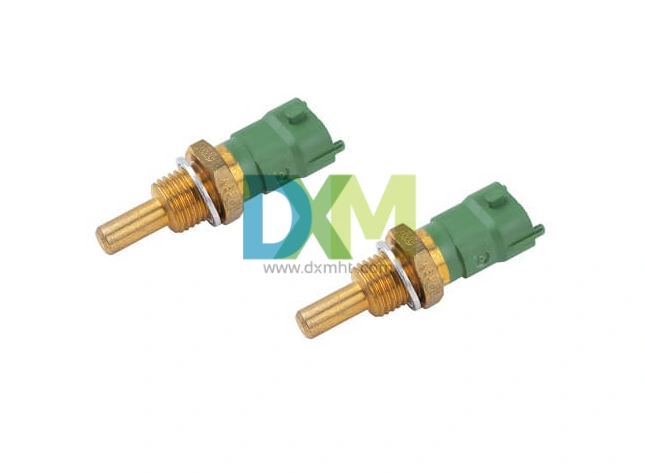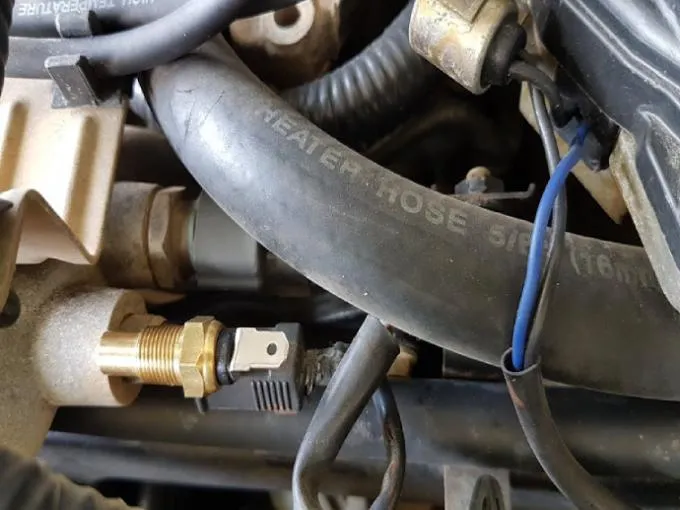Car Temperature Sensors: How Coolant Temperature Sensor Ensures Optimal Engine Performance
Discover how DXM's car temperature sensors, specifically the Coolant Temperature Sensor, ensure your engine runs smoothly. By accurately monitoring and regulating engine temperature, our sensors enhance performance and prevent overheating. Trust DXM for reliable solutions in maintaining optimal engine health. Explore how our cutting-edge technology can make a difference in your vehicle's efficiency.
- Understanding Car Temperature Sensors
- The Functionality of the Car Temperature Sensors
- Impact of Car Temperature Sensors on Vehicle Performance
- Symptoms of a Faulty Coolant Temperature Sensor
- Maintaining Car Temperature Sensors for Longevity
- Technological Advances and Future Trends of Car Temperature Sensors
- Call to Action
- FAQs
- Conclusion

In today’s automotive world, car temperature sensors, specifically the Coolant Temperature Sensor (CTS), play a pivotal role in vehicle performance and efficiency. As professionals in the field, we understand the demand for precision and reliability in these components. This article explores the function, importance, and maintenance of car temperature sensors, especially focusing on the Coolant Temperature Sensor, to offer insights and enhance your understanding of this critical automotive component.
Understanding Car Temperature Sensors
Car temperature sensors are vital for relaying data about the vehicle's operational performance to the Engine Control Unit (ECU). Among these, the Coolant Temperature Sensor is paramount as it monitors the temperature of the engine coolant, ensuring the engine operates within its optimal temperature range, preventing overheating or underperformance.

The Functionality of the Car Temperature Sensors
The Coolant Temperature Sensor measures the temperature of the engine's coolant and sends this information to the car's ECU. This data helps the ECU in regulating fuel injection, ignition timing, and other crucial aspects of engine operation, thus enhancing fuel efficiency and reducing emissions. By ensuring the engine operates at the correct temperature, the CTS protects the engine from potential overheating or cold-start inefficiencies.
Impact of Car Temperature Sensors on Vehicle Performance
Accurate readings from the Coolant Temperature Sensors are essential for optimal vehicle performance. If the CTS fails, it can lead to improper fuel mixture adjustments, affecting engine efficiency and increasing emissions. This section delves into the direct consequences of CTS malfunction, including poor fuel economy, engine overheating, and increased emissions.
Symptoms of a Faulty Coolant Temperature Sensor
Early detection of issues with the Coolant Temperature Sensor can prevent serious vehicle damage. Key symptoms include poor engine performance, the illumination of the check engine light, and unexpected temperature gauge fluctuations. By recognizing these signs, professionals can address and mitigate risks effectively.
Maintaining Car Temperature Sensors for Longevity
Regular maintenance and timely replacements are vital for the longevity of car temperature sensor. This section outlines best practices for professionals, highlighting strategies for regular inspections, cleaning, and calibration to ensure accurate readings and avoid premature sensor failure.
Technological Advances and Future Trends of Car Temperature Sensors
The automotive industry continues to innovate, improving the design and functionality of car temperature sensor. We discuss current advancements and future trends, such as the integration of smart sensors and advanced diagnostics, which are set to revolutionize vehicle temperature monitoring and enhance performance efficiency.
Call to Action
Understanding and maintaining car temperature sensors, especially the Coolant Temperature Sensor, is crucial for ensuring vehicle reliability and efficiency. By prioritizing regular inspections and staying updated on the latest technological advancements, we can optimize vehicle performance and longevity.
FAQs
1. What do Coolant Temperature Sensors do?
A Coolant Temperature Sensor monitors the engine coolant's temperature and sends data to the vehicle’s ECU for optimal engine performance.
2. What are the symptoms of a bad Coolant Temperature Sensor?
Symptoms include poor engine performance, increased emissions, and a lit check engine light.
3. Can a faulty Coolant Temperature Sensor impact fuel economy?
Yes, incorrect data from a faulty sensor can lead to inefficient fuel mixture setting, affecting fuel economy.
4. How often should Car Temperature Sensors be replaced?
It's advisable to replace them as per the vehicle manufacturer’s recommendation or if symptoms of malfunction appear.
5. Are there advancements in Coolant Temperature Sensor technology?
Yes, innovations include smart sensors that offer improved diagnostics and integration with modern vehicle systems.
Conclusion
In conclusion, Coolant Temperature Sensors are integral to vehicle operation, ensuring the engine operates within its designated parameters for efficiency and longevity. For professionals, understanding the intricacies of these car temperature sensors and maintaining them correctly is vital for optimizing vehicle performance. By using precise data and staying abreast of advancements, we ensure the vehicles we service run smoothly and efficiently.
© 2025 DXM Blog. All rights reserved.
Author: Ivan Huang
Recommended for you

What Is Positive Temperature Coefficient? Expert Guide on PTC Thermistors

Unlocking the 103 Capacitor: An Essential Guide for Professionals

Where Can I Buy Resistors? Your Expert Sourcing Guide

How to Find Impedance of a Capacitor: Guide for Professionals

how to calibrate rtd pt100?

Capacitor 104 Value: Essential Guide for Electronics Professionals
Logistics
How to track my order?
You can track your order through our official website or the order number provided and learn about the logistics status and delivery progress of your order at any time.
Shipment
1)Small order quantity and small packing:cargo may be arranged by courier;
2)Bulk order and big volume:shipment may be arranged by sea or by air as per customer’s requirements on FOB, C&F,CIF or LCL terms and do prompt shipment which is very important for our customers, so we do this matter seriously and we may arrange our shipment in time due to our rich experiences in this line. We may also accept the shipment on the term of freight prepaid or freight collect.
How long does logistics delivery take?
Shipping times depend on your location and the shipping method you choose. Generally speaking, international shipping can take anywhere from a few weeks to a few months.
Price and Payment
Do you offer bulk purchase discounts?
Yes, we offer bulk purchase discounts; the specific discount rate depends on the order quantity and cooperation method.
Customized Services
Free sample availability
You can contact our representative via email, fax or phone to specify the sample you need and provide your courier's account number (such as UPS, FedEx, DHL, TNT, etc.).. And we’ll send you samples free of charge through your courier by freight collection.
You may also like

PT1000 Temperature Sensor: DXM Precision Platinum RTD Solutions

KTY83-110 Sensor with Silicon Glass Thermistor

Bracket Type NTC Thermal Sensor MF52X for Precise Temperature Measurement

Glass Thermistors MF58E for High-Precision Applications

High Precise NTC Sensors for Temperature Measurement and Control

WMZ12A 75S PTC Thermistors for Over-Current and Over-Load Protection

SMD Sensors: Advanced Temperature Sensing Excellence

Thermistor PTC MZ11 Series for Light Efficient Design
Get in Touch
Discover premium thermistors, sensors, and resistors tailored to your needs.Our dedicated team of experts is available to assist with product selection, technical queries, and after-sales service. Contact us for custom solutions and experience exceptional customer support.
© 2025 DXM | All Rights Reserved.

 Scan QR Code
Scan QR Code
Scan QR Code
Whatsapp: +8618927361658
Shenzhen DXM Technology Co., Ltd.
DXM PTCNTC
Shenzhen DXM Technology Co., Ltd